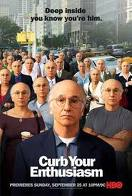Gableman Complaint is Dismissed
The Judicial Commission announced today that it is discontinuing prosecution of its complaint against Justice Michael Gableman. Quite apart from the merits of the complaint, this seems like the right thing to do given the deadlock on the Court and the particular positions taken by the Abrahamson and Prosser groups. As I explained here and here, there seems to be no way that further proceedings could be expected to break the impasse.
An interesting constitutional question was embedded within the writings of the Prosser and Abrahamson groups.


